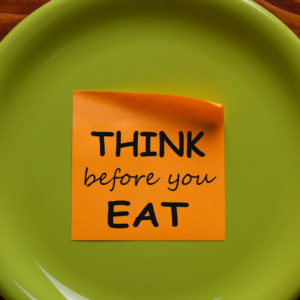
Emotional eating is often one of the ways used to deal with feelings. One tends to eat a lot when emotional. Food is found to be comforting in these circumstances. Everyone over eats sometimes, but when this happens a lot without even realising it, it’s called emotional eating. How you feel can also make you lose your appetite. This can occur due to various reasons like work stress, financial worries, health issues, relationship struggles, educational problems, family dynamics, boredom, depression and more. Positive emotions are also associated with emotional eating like, topping the class or winning the competition. But most of the times it is related to negative emotions. Food is believed to be a way to fill that void (emotions) and create a false feeling of “wholeness.” The food eaten at this time is generally high on calories, sweet and fatty foods. A few examples are having a pint of ice cream when feeling low, ordering pizza when lonely, having fries when stressed, eating donuts when sad, and having lots of cookies before an exam.
Here are a few signs of emotional eating. One craves for certain food items, binge eat, feel guilty about it later on, feel nauseas, gain weight which can lead to weight related health issues. This can all later lead on to obesity, heart diseases, lethargy, etc.
Analyze yourself if you feel you are eating emotionally. Ask questions to yourself like “Have I been eating larger portions than usual? Do I eat at unusual times? Do a feel a loss of control around food? Has there recently been a big jump in my weight?” If your answers are positive for these questions, then here are a few tips to get back on track:
- Maintain a food diary and write down what and when and how much do you eat.
- Take a nutritionists help for diet plans.
- Manage your stress in other ways like exercise, hobbies, meditation, etc. so that it doesn’t lead to emotional eating.
- Fight boredom by doing something productive or interesting instead eating just to pass time.
- Check if you are really hungry before eating.
- Keep healthy snacks in your cabinets instead of junk food.
- Distract yourself when you feel like eating abruptly. Do something different.
- Try not to tempt yourself.
- Write down your emotions and what you feel.
- Find the root cause of this emotional eating.
- Get support/help if necessary. Therapists will go down to the main issue and help you with coping strategies as well.
Emotional eating is fine if done rarely, but it’s harmful if done regularly. So if you think you are an emotional eater seek help and get back on track.

Important and relatable. Thank you✨